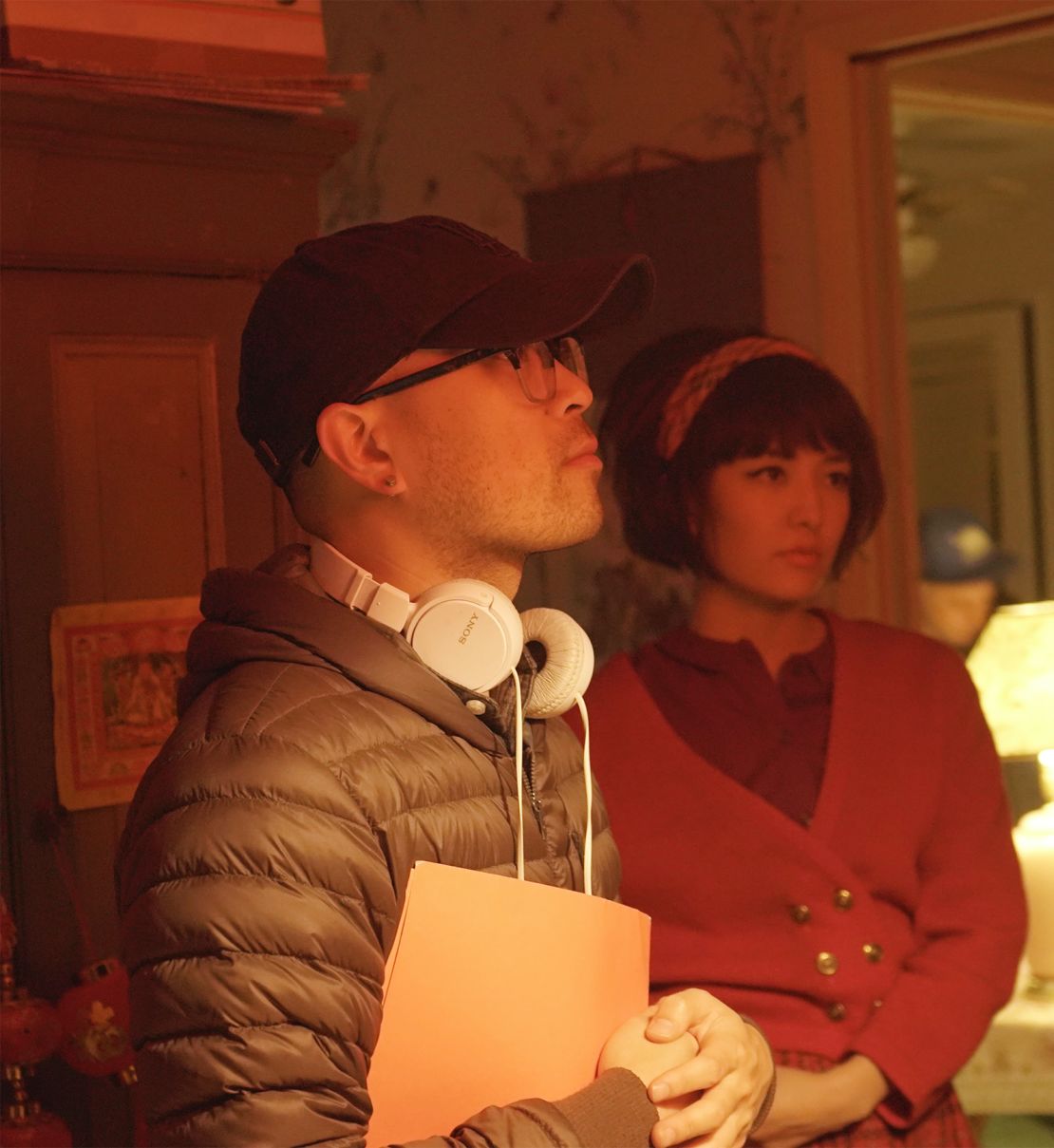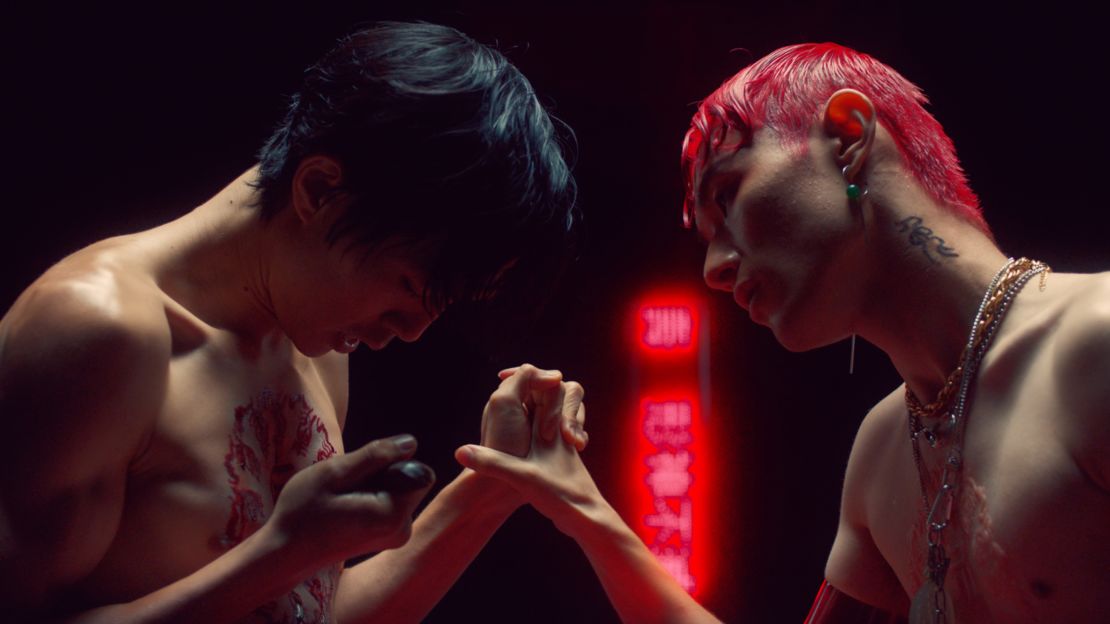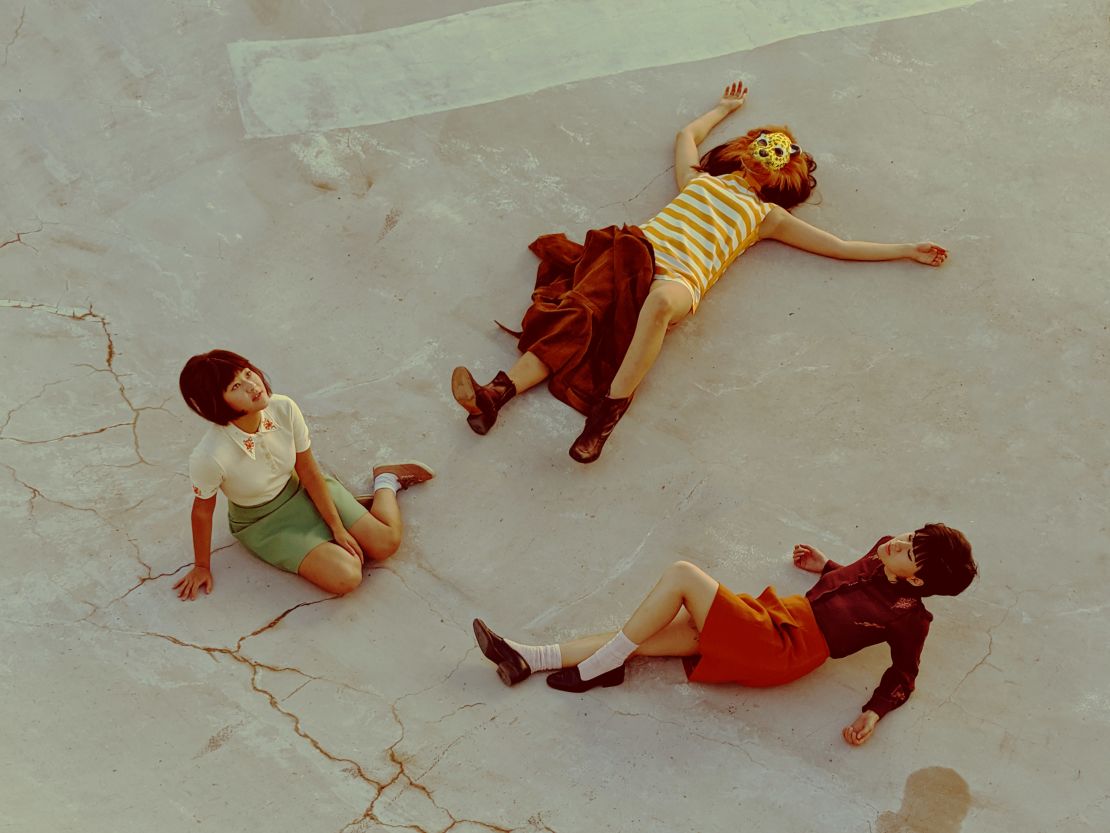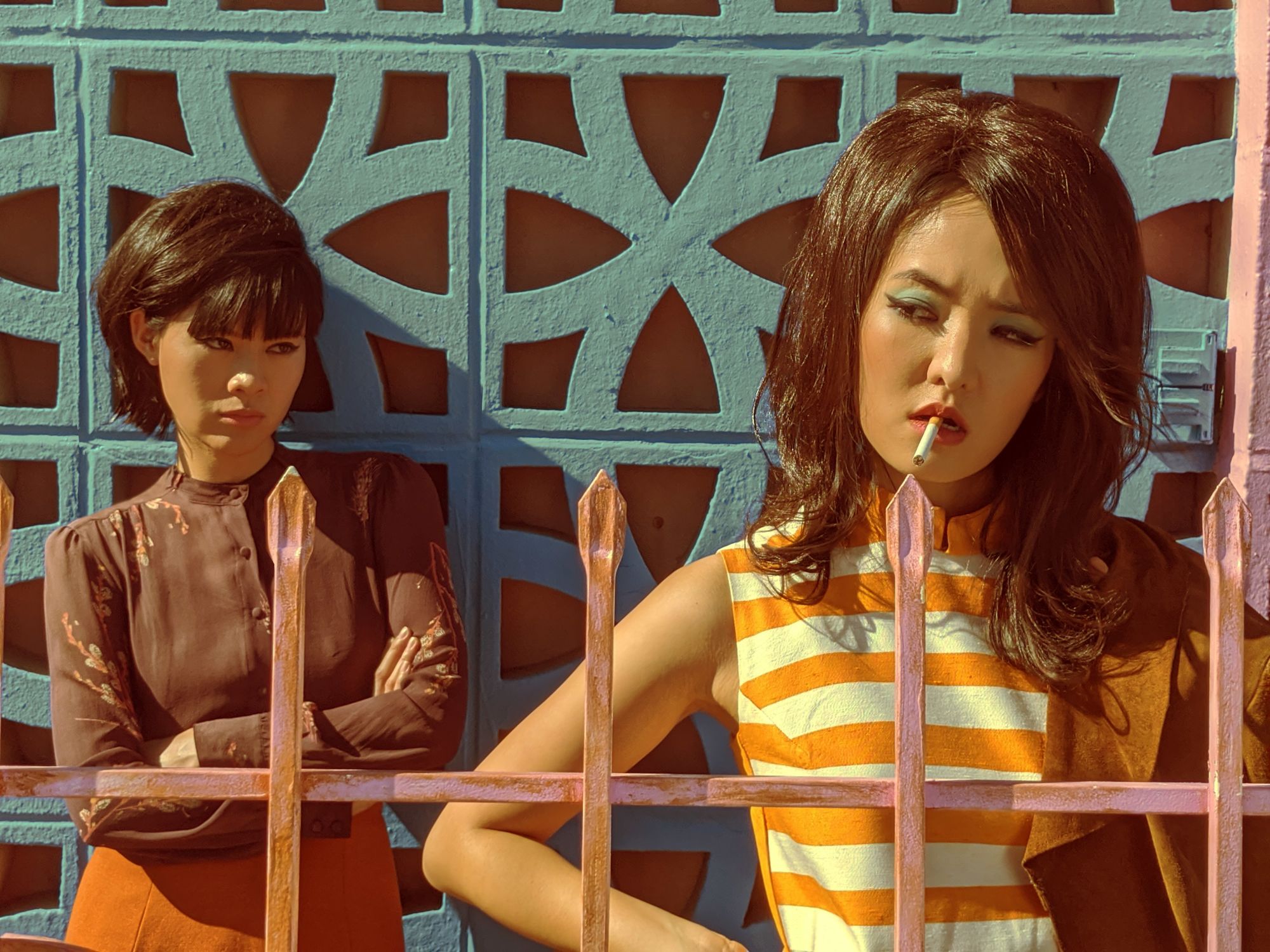Editor’s Note: This feature is part of CNN Style’s new series Hyphenated, which explores the complex issue of identity among minorities in the United States.
Andrew Thomas Huang is used to creating impossible worlds. He has summoned volcanoes and pulled cities from roiling landscapes. He has choreographed dances for fairies. He has shrunk the moon into a ball small enough to hold in your hand.
The 36-year-old filmmaker and artist made a name for himself directing music videos for the likes of FKA Twigs, Perfume Genius and Björk, using puppetry and digital effects to build alternate universes. Whether making these high-profile videos or his own independent short films, Huang’s trademark has always been technical wizardry. “I get excited when I see something and I can’t see the seams,” he said over a video call from his home in Los Angeles.
Now Huang is entering new territory – and with new priorities. His latest project, a feature-length coming-of-age fantasy movie called “Tiger Girl,” has a story that pulls just as much weight as the visuals.

“I do feel like there’s often a weird division,” said Huang. “There are those (filmmakers) who are really great at writing spoken words – acting, story, performance. There’s a sphere of craft there. But then there’s also a sphere of people who really get off on just visuals and design. I’ve noticed that there’s this bridge between the two that’s very difficult to cross.”
“Tiger Girl” is more personal than much of Huang’s previous work, drawing inspiration from his own Chinese American family. It follows a teenage girl who is – like Huang’s mother – growing up in 1960s LA while struggling to reconcile her own identity with family expectations. Then she finds a tiger living in their attic.
While the “Tiger Girl” script is still in late development, Huang released a pastel-hued short film, “Lily Chan and The Doom Girls” last year, that hints at the movie’s eventual look and feel. It features a shy protagonist who whiles away an afternoon with a group of bad girls sporting cat-eye eyeliner and teased hair. They chug beers in a parking lot and run around an empty swimming pool, bathed in milky California light. The fact that all the girls are Asian American makes this teenage dream feel quietly subversive; mainstream narratives about ’60s youth culture have long excluded teenagers who look like them.
Although Huang had been thinking about “Tiger Girl” for a decade, he said Donald Trump’s presidential inauguration in 2017 drove him to finally pursue the project.
“I just felt, at that political moment, like, ‘Why am I making work for this privileged, small audience?’” he said. “I was doing this kind of digital art exhibition (at the time), and I still value that work. But I felt like, if this work doesn’t make people laugh or cry, and it’s so expensive to make, then why am I making it?”
By that point, Huang had made countless music videos and shorts – all visually dazzling, but with less emphasis on dialogue and story. He started to think that storytelling could help him to connect with viewers on a deeper level. Maybe, instead of making imaginary worlds, he could use his own as a starting point.
Magic ‘accepted as fact’
Huang first discovered the fantasy genre in elementary school. Growing up in a suburb of LA, he fell in love with Jim Henson films like “Labyrinth” and “The Dark Crystal,” becoming obsessed with the art of puppetry. He longed to shape the foam, cut the patterns and work the armatures.
Later, he started working with digital animation tools, which he describes as being “a little bit more efficient.” Still, he has never abandoned hands-on craft. Even with digital assistance, puppets and practical effects form the core of his aesthetic.
More recently, Huang has found inspiration in artists like Thai filmmaker Apichatpong Weerasethakul, whose work he said, incorporates elements that “speak truth to a spiritual realism or dream logic.” This approach stands in stark contrast to what Huang sees as Western narratives’ obsession with rules, even in sci-fi and fantasy. Huang is hungry for stories that aren’t so “rationally tidy.”
“I even think the word ‘supernatural’ kind of kills the magic,” he said. “I like when magic is just accepted as fact.”
Telling personal stories has always felt more fraught for Huang than fantasy. He identifies as queer and grew up in an intensely Christian household where the church had instilled an intensely “prudish” attitude toward sex. While he’s no longer Christian, the filmmaker said religion has had a long-lasting influence – pushing him to ask big questions about morality, sacrifice and existence: “It continues to be a huge reason why I am interested in finding alternative languages for speaking about personal, spiritual, emotional and sexual experiences.”
Two years ago, online video platform Nowness asked Huang to contribute to a series of films about sex. Specifically, he was asked to make work about queer Asian sexuality. He balked at first.
“I was terrified of the idea of making a work that was so vulnerable,” he said. “And for a moment, I was like, ‘Why am I burdened with the task of tokenizing, and having to make a piece about me and my intersection?’ But then another part of me was like, ‘Well, you haven’t done it yet.’”
The resulting short film, “Kiss of the Rabbit God,” follows a young worker at a Cantonese restaurant who meets – and is seduced by – a sexy, cherry-haired incarnation of the Qing dynasty god Tu’er Shen, also known as the Rabbit God, the deity of homosexual love.

In choosing the setting, Huang drew on his own life for the first time. He searched all over LA for a restaurant that would look like the one his Toisanese grandparents had once owned in Gardena, California, that his mother had helped run when Huang was growing up.
The film flips between scenes of hectic restaurant work – the heat and exhaustion of taking orders and clearing tables – and hushed after-hours encounters between the protagonist and the Rabbit God. Huang takes what might have been a more typical story of immigrant hustle and dissolves it into a pool of erotic self-discovery.
Uncertain times
The pandemic has cast uncertainty over Huang’s plans. After taking a family trip to China in 2019, Huang felt closer to his roots than ever, and he had been hoping to return. He had workshopped the “Tiger Girl” script at the Sundance Screenwriters and Directors Lab, and was finding momentum and community with “a wave of … my diasporic friends making really exciting work.”
And then Covid-19 hit. For now, he’s fine-tuning the “Tiger Girl” script with a view to starting the casting process. But the forced pause in production has also provided Huang with time to consider what he hopes to accomplish with the movie.
“Tiger Girl” will be, in some ways, a classic American story about a second-generation kid trying to navigate the pressures of parents and society. But Huang wants to evade cliche by avoiding a dreary, realist aesthetic, and instead use his signature mixed-media to depict characters’ inner worlds.

“I just don’t see why these things are mutually exclusive – why someone’s inner life can’t be expressed with the same flair, effects and visuals as a big Hollywood movie,” Huang said.
“I think, so much of the time, this arsenal of Hollywood production is used for very external stories of good versus evil. I’m more interested in finding a symbolic language to talk about this stuff.”
Top image caption: Still from “Lily Chan & The Doom Girls” featuring Linda Ngo (left) and Hojo Shin (right).
